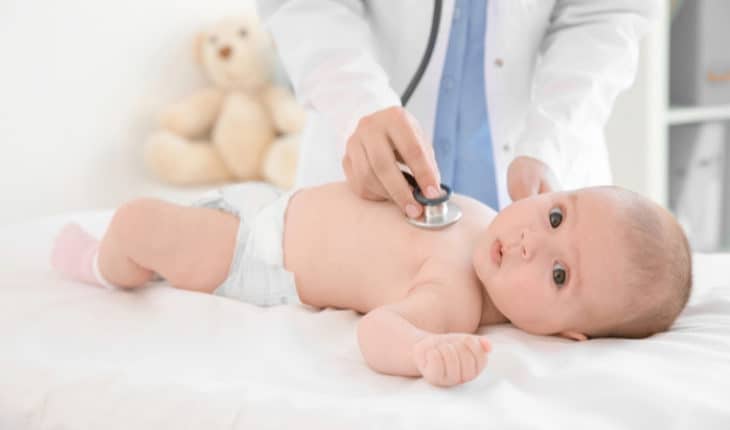Melbourne researchers have discovered a potential pathway linking early life infections to cardiovascular disease risk later in adulthood, offering opportunities for targeted intervention.
The study, led by the Murdoch Children Research Institute (MCRI) and published in eLife, found that elevated inflammation markers and changes in metabolism (the way the body’s cells process food into energy) observed in infection-prone infants resembled those in adults at risk of cardiovascular disease.
Murdoch Children’s researcher Dr Toby Mansell said the findings suggested that the impact of cumulative infections in infancy could predispose adults to a higher risk of heart disease, obesity, stroke and type 2 diabetes.
“We found the risk of adult-onset cardiovascular disease could be accruing from early life,” he said. We know babies are prone to infections. This causes inflammation, a key cardiometabolic risk factor, but the relationship between infection, inflammation, and metabolic profiles in early childhood had remained underexplored until this study.”
The study involved 555 infants from the Barwon Infant Study, a collaborative project between Barwon Health, Murdoch Children’s and Deakin University, with infant infections tracked over 12 months.
The research found high rates of infant infections by 12 months of age were associated with elevated inflammation markers and changes to metabolic profiles, which influence how the body processes fats, proteins and sugars.
Murdoch Children’s Professor David Burgner said infection had been recognised as a potential contributor to cardiovascular disease, one of the leading causes of death in adults globally.
In Australia, cardiovascular disease accounts for a quarter of all deaths, claiming the life of one person every 10 minutes. More than 4 million Australians have cardiovascular disease and someone is hospitalised with the disease every minute.
Professor Burgner said the research offered opportunities for early prevention measures such as identifying the types of infection and the children at highest risk, and how these risks might be offset by simple interventions.
“Targeted action could include promoting breastfeeding, ensuring timely vaccinations, and supporting families so that they can keep children at home if they are unwell with an infection,” he said.
Researchers from The Royal Children’s Hospital, the University of Melbourne, Baker Heart and Diabetes Institute, The Florey Institute of Neuroscience and Mental Health, Deakin University, Radboud University Medical Centre in the Netherlands, the University of Queensland, Barwon Health and Monash University also contributed to the study.
Publication: Toby Mansell, Richard Saffery, Satvika Burugupalli, Anne-Louise Ponsonby, Mimi LK Tang, Martin O’Hely, Siroon Bekkering, Adam AT Smith, Rebecca Rowland, Sarath Ranganathan, Peter D Sly, Peter Vuillermin, Fiona Collier, Peter J Meikle and David P Burgner. ‘Early life infection and proinflammatory, atherogenic metabolomic and lipidomic profiles in infancy: a population-based cohort study,’ eLife. DOI: 10.7554/eLife.75170
*The content of this communication is the sole responsibility of MCRI and does not reflect the views of the NHMRC.
- Gut microbiome could delay onset of type 1 diabetes - 3rd April 2025
- The da Vinci 5 Robot Is Set To Transform Bariatric Care: - 31st March 2025
- Beyond money: the hidden drivers fuelling child food insecurity - 31st March 2025






